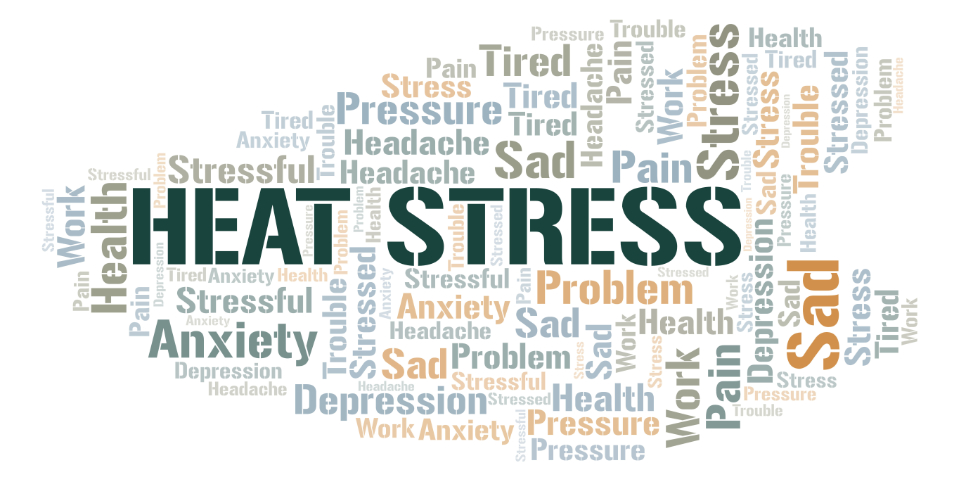Safety Source
Heat Stress Illnesses
Safety Training Manager Samuel Wilfert highlights the symptoms of heat stress illnesses and tips for prevention.
Heat illnesses can occur when you are subjected to hot environments and fail to take in enough fluids, salts, or both. And, even worse, this can lead to a life-threatening condition known as a heat stroke. Heat stroke happens when the body’s internal mechanism fails to regulate its core temperature. At this point, the body stops cooling itself through perspiration and can’t get rid of excess heat. The end result can be death if the body temperature isn’t lowered immediately! If you work in hot environments, it’s critical to recognize when you’re suffering from a heat stress illness.
Symptoms of Heat Stress Illnesses:
- Heat Cramps - Symptoms are painful spasms of the muscles. Heat cramps are caused when workers consume large quantities of water, but fail to take in enough salt to replace the salt their body lost through sweating. Tired muscles are most susceptible to cramping.
- Heat Exhaustion - Symptoms for this disorder are moist, clammy, and pale skin; profuse sweating; extreme weakness or fatigue; dry mouth; dizziness; fast pulse; rapid breathing; muscle cramps andnausea.
- Heat/Sun Stroke - Symptoms are a very high body temperature (104 degrees or higher); lack of sweat; mental confusion, delirium, or hallucinations; deep breathing and rapid pulse; hot, dry, red or mottled skin; and dilated pupils. Get medical help at once for this!

Tips for Prevention:
- Acclimatization - Adjust yourself to the heat through short exposure periods followed by longer exposure until your body is accustomed to the heat. It may take five to seven days of hot weather exposure before the body undergoes changes that make heat more bearable.
- Drink Lots of Water/Liquids - Replenish the fluid that your body is losing though sweating. Not only water, but critical electrolytes such as sodium, potassium and calcium are lost through sweating, so consider using electrolyte drinks to combat heat-related disorders.
- Education - Know the signs and symptoms of heat stress illnesses and act quickly.
- Use Your Head - Do not ignore possible symptoms of heat stress disorders. If you feel very hot, dizzy, nauseous or if your muscles cramp, stop and cool off!
Heat stress illnesses are serious. Those who have ignored the symptoms have lost their lives. Humans have a personal, “natural” air conditioner. We sweat, it evaporates through our skin, and we’re cooled off. But this personal air conditioner can fail, and often does, if we overexert when environmental temperatures are high.



